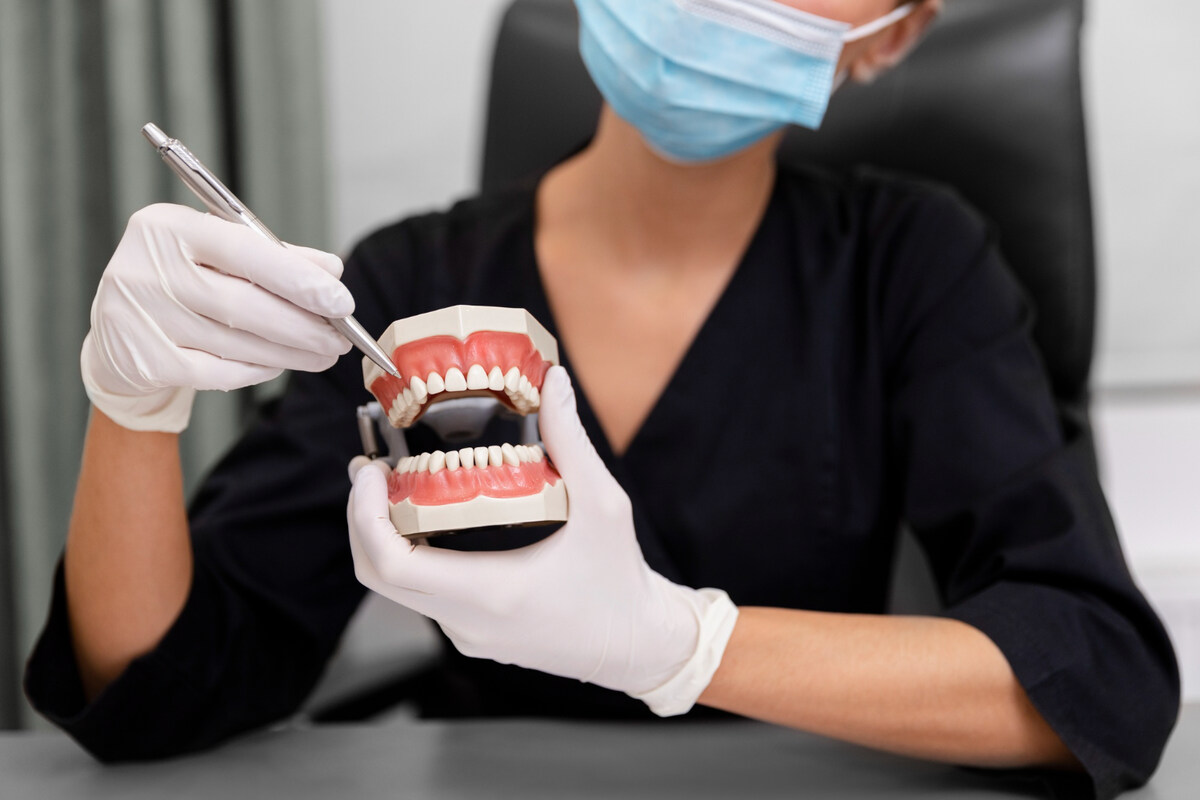Are you debating on getting dentures near you? If you are, it’s essential to keep in mind that it does take some time to adjust to wearing them every day. You may also find activities you used to take for granted difficult in the first few days and weeks like eating and speaking smoothly.
The good news is that most of these issues are simple to resolve and will eventually go away. Your dentist will ensure that when you come in to receive your device, they fit you properly and feel comfortable, if not a little strange. Again, that’s okay and it’s perfectly normal. They’ll also walk you through some strategies to help you through this transition phase.
Described below are some common challenges that first-time denture wearers can experience as well as how you can overcome them to enjoy your new smile:
Pain and Discomfort
In the early phases of your adjustment period, especially in the first few hours (or even days) following receiving your new dentures, soreness and discomfort are common.
This is frequently brought on by your new dentures pressing against your gums, which can annoy and hurt. But this initial soreness should eventually go away as your mouth and gums adjust to your new dentures. Consult your dentist in Toronto as soon as possible to have it evaluated if the pain continues or worsens. To lessen the discomfort, try washing your mouth with a saltwater solution. If necessary, you can also try rubbing your gums or getting an over-the-counter pain reliever.
Speech Difficulty
Most people find it challenging to speak normally while getting used to new dentures since they initially feel unusual in their mouths. You should get your tongue and mouth muscles used to the feeling of speaking if you have this issue. Be persistent and patient, as this process may take some time. You’ll find yourself returning to your regular speaking pattern as your mouth adjusts to your new dentures.
It should be practiced. Speaking frequently is the best method to get over the difficulty of speaking with new dentures. You might also try singing along to your favourite tunes to get your tongue used to speaking normally once more.
Sliding Prosthetics
Your mouth and gums will require some time to adjust once you have gotten dentures in Toronto, no matter how beautifully they are made. Most dentures (i.e., removable dentures) are held in place by different muscles in your mouth, unlike your teeth, which are naturally anchored in your gums. Because of this, during the first several weeks, infants frequently slip or move around easily while eating or speaking. Your mouth, tongue, and gums are still learning how to work together and hold them in place during the transition phase.
Be gentle while adjusting them each time they fall out to give them time to acclimatize appropriately. As you become adjusted to your new dentures, this issue frequently goes away on its own.
Trouble Eating
Because your lips are still getting used to the new dentures or because your gums are still mending after surgeries, you might find it challenging to eat properly shortly after getting new dentures. Try to be patient and give your mouth some time to adjust if you’re experiencing problems eating with your new dentures.
Some foods may be uncomfortable for you to consume, and your dentures may keep falling out while you eat. But you’ll start to eat normally after your mouth and gums adapt to your new dentures. Avoid eating anything sticky or hard for the first few weeks after getting new dentures. This will lessen the strain that eating and chewing place on your gums. Up your game by trying harder
Excess Saliva
Your body may become confused by new dentures, believing them to be food or an outside object. Your salivary glands may work harder as a result, producing more saliva than usual. The good news is that your salivary glands will ultimately function correctly again and generate saliva at normal levels as your mouth gets used to your new dentures.
There isn’t much you can do about this; simply get used to swallowing more regularly in order to deal with the extra saliva. Your salivary glands and mouth will ultimately get used to your new dentures, and this problem will go away on its own.
Want Additional Denture Advice and Tips?
To learn more about typical denture issues or to understand how to live with dentures, visit our dentist near you. At Bloor Lansdowne Dental Centre, our team of oral health experts are at your service; whatever you need, we can help you address. Call or message us today.
